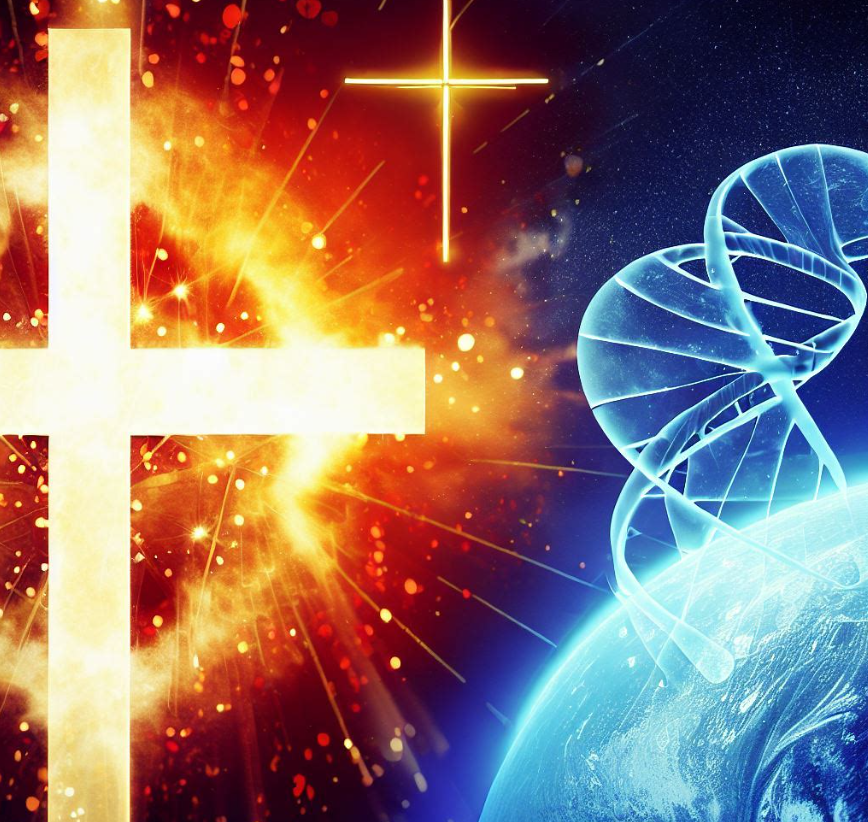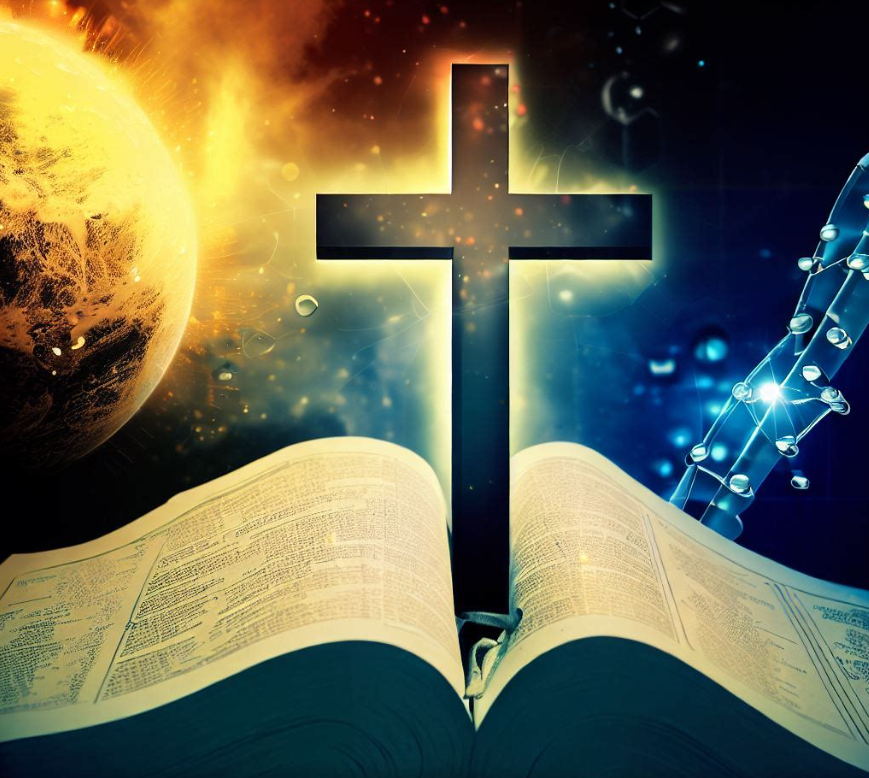Christianity and Science

The alliance between Christianity and science is deep-rooted and manifold, their connection stretching back centuries. Their relationship has witnessed a range of interactions, from cooperation and blending to opposition and autonomy. Numerous scholars have studied this fascinating relationship, underscoring its complex and diverse nature.
The history of Christianity and science is rich and intricate, their paths entwining and coalescing at various junctures throughout history. Ancient Greeks, revered for their significant strides in scientific thought and discovery, played a crucial role in this shared history. Their scientific advancements profoundly influenced Christian thought during the medieval period, providing critical foundations for religious study and doctrine.
This fusion of Greek science and Christian theology paved the way for Christians to make their own noteworthy contributions to science, extending the shared history between these domains. Forefront among these were theologians, such as Thomas Aquinas, who expertly merged religious teachings and scientific reasoning. This blend of science and Christianity demonstrates an early manifestation of their amalgamation, a relationship that was formed centuries before the concepts of ‘science’ and ‘religion’ as we understand them today, existed.
Then came the epoch of the Renaissance, a transformative period of human history marked by renewed interest in the learning of the past. This era, along with the subsequent reformation and enlightenment periods, marked crucial chapters in the unfolding narrative of Christianity and science. The intellectual discourse between these domains not only persisted but thrived, catalyzing an era of vigorous scientific investigation.
Renowned historical figures such as Copernicus and Galileo emerged during this time and were instrumental in propelling scientific thought. Despite the frequent opposition and hurdles from the church, they steadfastly pursued their scientific endeavors. Their work, often deemed heretical by the prevailing religious hegemony, brought forth revolutionary shifts in our perception of the universe and our place within it. Their dedication to scientific inquiry and their resolute courage in the face of opposition prove an integral part of the rich, evolving history of Christianity and science.
This depiction of the complex and intertwined history of Christianity and science underscores a multifaceted relationship. It dispels the oversimplified dichotomous depiction that is often presented, revealing instead that these two fields have a deep and intricate shared history. Despite significant differences, they have continually interacted, cooperated, and at times even amalgamated. They continue to shape and inform each other as age-old pillars of human understanding and discovery.
Views of Modern Christians on Science
Modern Christianity presents an extensive scope of attitudes towards science, showcasing varied interpretations regarding its relationship with divine creation and religious doctrine. Scientific exploration of the natural world is embraced by many within the Christian community, regarded as the coming to an understanding of the divine plan set forth by God, mapping the intricate details of His creations. Others, on the contrary, see potential conflict between these two vast domains.
Christian denominations of numerous sorts have shown open acceptance of scientific advancements. A prime example is found in the stance of the Catholic Church. The institution acknowledges the validity and importance of evolutionary theory along with the Big Bang theory. Pope Francis, serving as a progressive religious figure, shared statements that such scientific theories pose no contradiction to the teachings and beliefs upheld within the sphere of religion.

The acceptance of science is not confined to merely acknowledging its theories; instead, it extends to active participation in the field. Evidence lies in the fact that the Vatican operates its own observatory. This serves as a platform for interaction and involvement in the exciting quests pursued in science, signaling open-ended dialogue between these two realms.
Mediating the relationship between religion and science, however, are some conservative Christian groups. They entertain suspicions surrounding certain scientific theories. Evolution, in particular, is a frequent subject of controversy. These groups strongly endorse the teaching of genesis within school curriculums, opting for a literal interpretation of the scripture that forms their religious foundation.
It is pivotal to note that many Christians not just endorse science but choose it as their profession, making significant contributions in diverse fields. These fields range from physics to biology and even stretch as far as astrobiology. Navigating through complex scientific investigations and breeding religious faith within them, these individuals find a way to integrate their religious beliefs with their scientific endeavors. They promote harmony between these domains, showcasing the potential unity of faith and science.
Therefore, the views of modern Christians towards science are replete with diversity and complexity, mirroring the heterogeneous nature of the modern world. Yet it is essential to underscore that most Christians interpret scientific knowledge as a testament to God’s creation, whether they agree or disagree with certain theories. The dialogue between Christianity and science, thus, paints a vivid image of faith meeting reason on various terms.
The Intersection of Christianity and Science
Understanding the interface of Christianity and science, it is essential to perceive that they are not mutually exclusive. They frequently intersect, fostering a conversation that stirs both faith-based contemplation and scientific curiosity. The Christian interpretation of God’s creation can inspire awe, instigate a powerful urge to delve deeper into the cosmos, and comprehend its complex mechanics better.
Noteworthy frameworks like BioLogos, instituted by renowned geneticist Francis Collins, highlight the harmonious relationship of Christian belief and burgeoning scientific revelations. The Christian faith does not hinder scientific developments; rather, it provides a complementary and enriching perspective. Professionals of science, who are simultaneously devout Christians, often describe their pursuits as explorations into the natural world, a landscape divinely inspired. They are able to forge a profound link between their faith and occupational responsibilities, thereby enriching both aspects of their existence.
Prominent theologians, such as John Polkinghorne, postulate the concept of critical realism. This viewpoint acknowledges that human perception of reality spanning scientific understanding and religious belief is not an absolute interpretation, but one which is constantly evolving, progressing, and subject to revision with enhanced knowledge and understanding over time.
By drawing upon different methods, both Christianity and science make attempts to decrypt the complex enigma of life from separate viewing lenses. Science focuses on empirical facts, laying out the ‘how’ and ‘what’ dimensions of the universe. On the contrary, Christianity, alongside religion in a broader perspective, dig into the ‘why’ aspect of existence. These endeavors explore the purpose, the motive behind existence, an area typically untouched by scientific investigations.
The harmonious integration of Christianity and science is a powerful conduit, directing one not merely towards intellectual advancement but also towards emotional and spiritual growth. These explorations lend themselves to a comprehension of the world and its myriad complexities that is holistic in nature. Therefore, it is not an understatement to say that Christianity and science are far from incompatible and can coexist in tandem, promoting a deeper, more inclusive understanding of the world.
